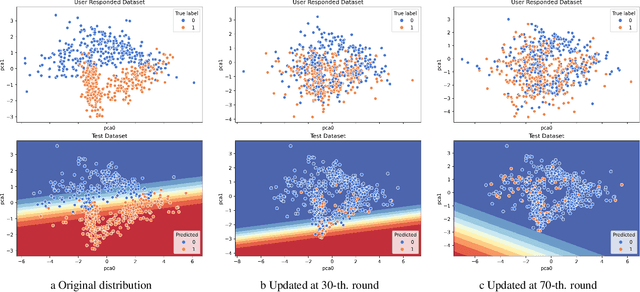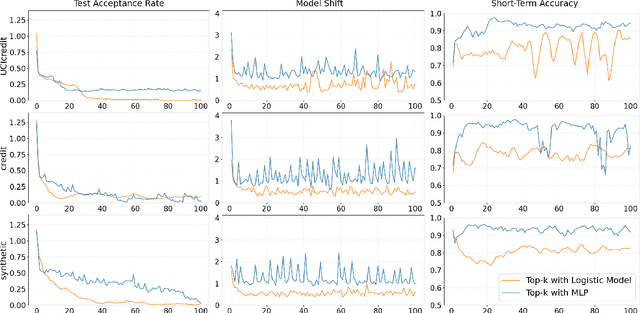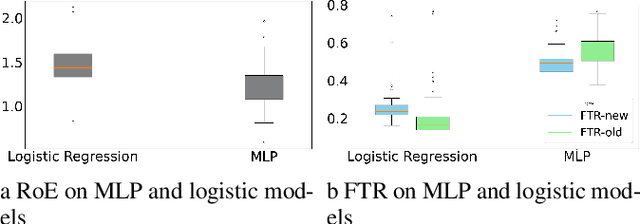Bo-Yi Liu
Towards Robust Model Evolution with Algorithmic Recourse
Mar 12, 2025



Abstract:Algorithmic Recourse is a way for users to modify their attributes to align with a model's expectations, thereby improving their outcomes after receiving unfavorable decisions. In real-world scenarios, users often need to strategically adjust their attributes to compete for limited resources. However, such strategic behavior induces users to "game" algorithms, causing model collapse due to distribution shifts. These shifts arise from user competition, resource constraints, and adaptive user responses. While prior research on Algorithmic Recourse has explored its effects on both systems and users, the impact of resource constraints and competition over time remains underexplored. In this work, we develop a general framework to model user strategic behaviors and their interactions with decision-making systems under resource constraints and competitive dynamics. Through theoretical analysis and empirical evaluation, we identify three key phenomena that arise consistently in both synthetic and real-world datasets: escalating decision boundaries, non-robust model predictions, and inequitable recourse actions. Finally, we discuss the broader social implications of these findings and present two algorithmic strategies aimed at mitigating these challenges.
 Add to Chrome
Add to Chrome Add to Firefox
Add to Firefox Add to Edge
Add to Edge